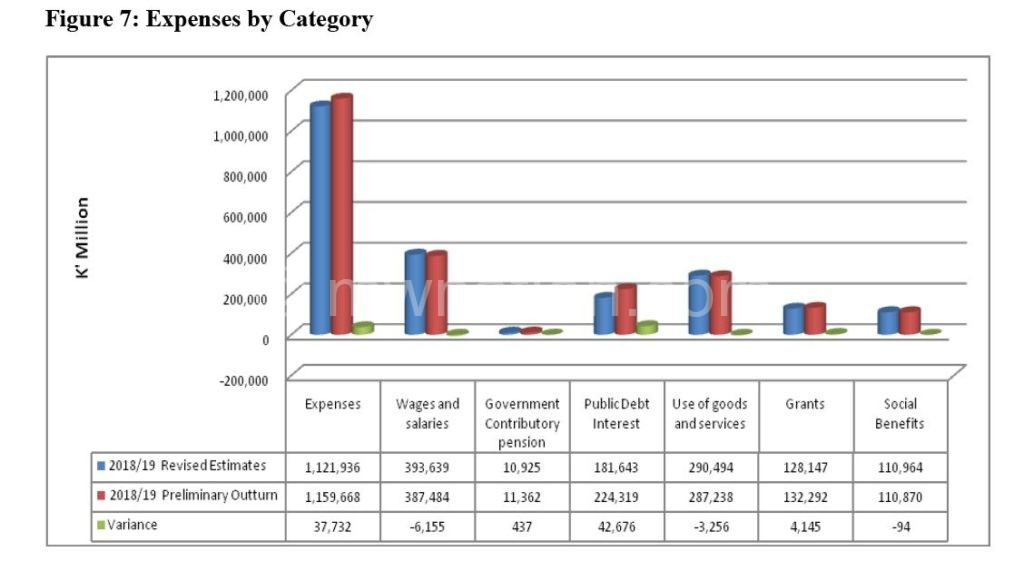IMF says reforms key to debt reduction
The International Monetary Fund (IMF) says Malawi needs wider structural reforms accompanied by prudent fiscal policies to reduce fiscal deficits and public debt.
IMF resident representative Farayi Gwenhamo said this in a written response on Monday in reaction to published figures from IMF Regional Economic Outlook for October 2019, whose launch is set for next month in Malawi.

In the outlook, IMF sees the country’s fiscal deficit, including grants, declining to -2.8 percent of gross domestic product (GDP) in 2020 from -4.9 percent of GDP in 2019.
At the same time, government debt as a percentage of GDP is projected to decline from 65.1 percent in 2019 to 63.9 percent in 2020.
Gwenhamo said declining fiscal deficits and sustainable debt are both crucial in maintaining and entrenching stable macroeconomic environment which Malawi has enjoyed in recent years characterised by single digit stable inflation and a stable foreign exchange market.
But she said structural reforms should ensure increased revenue.
She said: “For instance, structural reforms should ensure that revenue increasing measures also promote promote efficient, stable and predictable taxation that minimises distortions and attract investment.
“Structural reforms in public enterprises should improve cost-efficiency and pricing of utilities and energy, for example, while enhancing private sector involvement.”
In the 2019/20 National Budget, overall deficit is estimated at K155.9 billion or 2.5 percent of GDP, which is 51.3 percent reduction from the 2018/19 fiscal year’s preliminary actual budget deficit outturn of K320.2 billion.
According to the Reserve Bank of Malawi (RBM) Financial and Economic Review for December 2018, domestic debt at the end of the review quarter was at K1.7 trillion (32.3 percent of GDP) while foreign debt (external debt) stood at K1.6 trillion, pushing the public debt stock at K3.3 trillion, which is 65 percent of GDP.
World Bank figures, on the other hand, indicate that interest payments on domestic debt have reached 20 percent of Malawi’s government revenue.
For instance, Treasury figures indicate that for the 2019/20 fiscal plan, payment of interest on the country’s public debt is projected at K243.9 billion or 3.9 percent of GDP, representing 8.8 percent increase from the amount paid during the last financial year.
Economics Association of Malawi (Ecama) president Chikumbutso Kalilombe said the projected decline could help provide opportunity for the private sector to thrive as the crowding out effect of government borrowing will subside.
Minister of Finance, Economic Planning and Development Joseph Mwanamvekha is on record as having admitted that Treasury is facing challenges to curb fiscal deficits.





